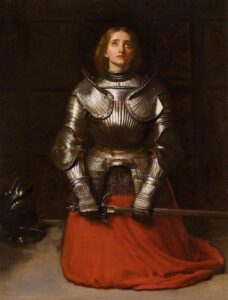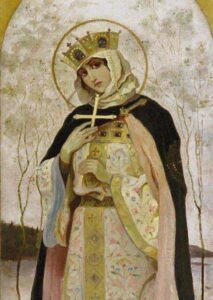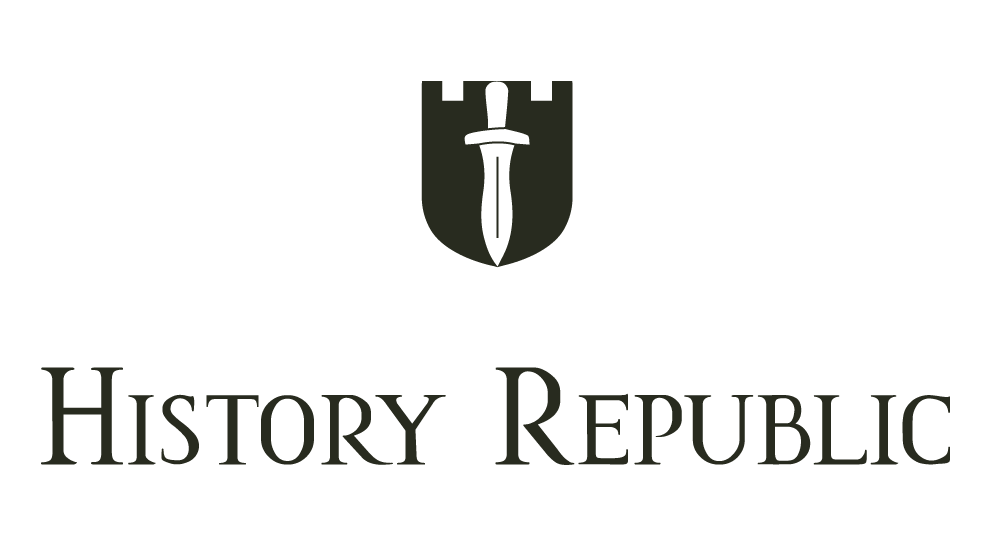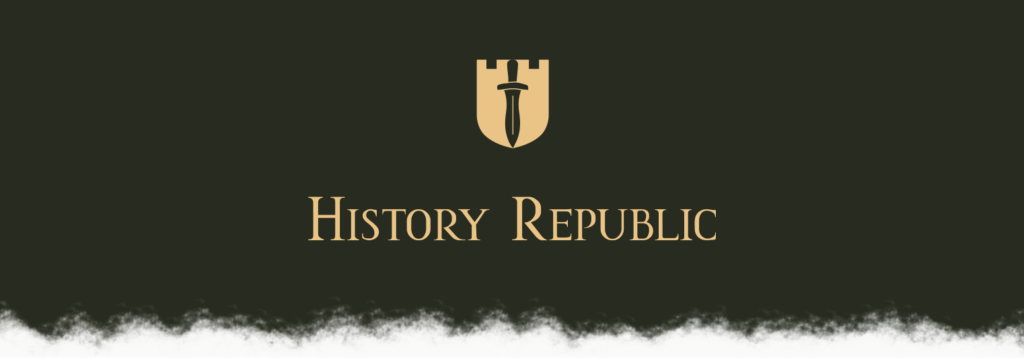Introduction
Charlemagne, also known as Charles the Great, was a Frankish king who ruled from 768 to his death in 814. He was also the first emperor of the Holy Roman Empire, a title he received from Pope Leo III in 800. He ruled over much of Western Europe and is widely regarded as the “Father of Europe” and of the most important figures in European history. His reign had a profound impact on the development of Western civilization.
Early Days
His family started to rise to prominence in the Frankish kingdom thanks to his grandfather, Charles Martel, who had been the de facto ruler of the Franks, having defeated a Muslim invasion of Europe in the Battle of Tours in 732 CE. Charlemagne’s father, Pepin the Short, continued this legacy and consolidated the family’s power by removing the last Merovingian king, Childeric III, from the throne in 751 CE and taking the title of king for himself.
Charlemagne was born in 742 CE in the region of what is now Belgium, to a Frankish noble family. He was the eldest son of Pepin the Short, who was the first of the Carolingian dynasty to rule over the Franks. Charlemagne was raised in a courtly environment where he was educated in the liberal arts and trained in the art of war.
As a young man, Charlemagne was involved in several military campaigns alongside his father, including battles against the Saxons and the Aquitanians. These experiences helped to shape his military prowess and leadership skills, which he would later put to use during his own reign.
Education
Charlemagne was known for his love of learning and was a patron of the arts and education. He received a classical education, which was unusual for a ruler of his time, and was well-versed in Latin, the language of the church and of scholarship in the Middle Ages.
He had a keen interest in literature, and he was particularly fond of the works of the Roman poets Virgil and Horace. He was also interested in history and had a passion for reading biographies of great leaders of the past. Charlemagne was a skilled speaker and writer, and he was known for his eloquence and rhetorical ability.
Charlemagne was not only interested in his own education, but he was also committed to promoting education and scholarship throughout his kingdom. He established several schools and monasteries and invited scholars from across Europe to his court. He believed that education was important not only for personal enrichment but also for the good of society as a whole.
Charlemagne was also interested in the preservation of knowledge, and he commissioned the copying of many classical works. He had a particular interest in preserving and promoting the knowledge of the classical world, which had largely been lost during the Dark Ages. He also encouraged the creation of new works of art and literature, including illuminated manuscripts and tapestries.
Charlemagne’s commitment to education and scholarship had a profound impact on the culture and identity of his kingdom. The knowledge and learning that he helped to promote would form the foundation for the intellectual and cultural flourishing of the High Middle Ages, which would follow several centuries later.
What do we know about his personality?
Our knowledge of Charlemagne’s personality is based mainly on accounts written by his contemporaries, such as Einhard’s Vita Karoli Magni (Life of Charlemagne), as well as on legends and myths that developed around him over time. While there is some debate about the accuracy of these accounts, they provide some insight into Charlemagne’s character.
Charlemagne was known for his intelligence, his love of learning, and his curiosity about the world. He was fluent in several languages, including Latin and Germanic languages, and he was interested in astronomy, mathematics, and literature. He was also a skilled military leader and strategist, and he was personally involved in many of the military campaigns that he led.
Charlemagne was a devout Christian who took his religious duties seriously. He attended church regularly, supported the church financially, and saw it as his duty to spread Christianity throughout his empire. He also saw himself as the defender of the church, and he intervened in church affairs when he felt it was necessary.
Charlemagne was known for his physical strength and his love of hunting and outdoor activities. He was tall and muscular, with a long beard and piercing blue eyes. He was also known for his generosity, and he gave lavishly to his friends and allies.
Charlemagne was a complex and multifaceted individual who was both a warrior and a scholar, a Christian and a conqueror. He was a man of his times, shaped by the political, social, and religious realities of the world in which he lived.
Ascencion to the Throne
In 768 CE, Charlemagne’s father Pepin The Short died, and he and his younger brother Carloman inherited the Frankish kingdom, which was then divided between them(As Frankish custom). The brothers initially ruled together, but their relationship was strained fraught with tension and conflict, and they often found themselves at odds with each other over issues of governance and succession. However, Carloman died suddenly in 771 CE, leaving Charlemagne as the sole ruler of the Frankish kingdom.
Charlemagne proved to be a talented and ambitious ruler. Charlemagne was one of the most successful military commanders of the Middle Ages, and his campaigns played a significant role in the expansion of the Frankish kingdom and the establishment of his empire.
He quickly set about expanding his territory, launching a series of successful military campaigns against neighboring tribes and kingdoms. Over time, he was able to bring much of Western Europe under his control, creating an empire that stretched from modern-day France to Germany and Italy.
Military campaigns
Charlemagne’s military campaigns began shortly after he became sole ruler of the Frankish kingdom in 771 CE.
Here is an account of some of Charlemagne’s notable military campaigns:
Campaign against the Lombards (773-774):
One of Charlemagne’s earliest military campaigns was directed against the Lombard Kingdom in northern Italy. The Lombards posed a threat to papal authority, and Pope Adrian I sought Charlemagne’s assistance. In response, Charlemagne led a Frankish army across the Alps, defeating the Lombard forces and capturing their king, Desiderius. Charlemagne then assumed control of Lombardy, extending his influence over the region and forging alliances with local Italian powers.
Conquest of Bavaria (787-788):
Charlemagne turned his attention to the southeastern territories of his empire, where the Bavarians resisted Frankish authority. He launched a military campaign against the Bavarians, leading his forces through the region. After a series of battles and sieges, Charlemagne succeeded in subduing Bavaria, incorporating it into his expanding empire and establishing Frankish control over the region.
Saxon Wars (772-804):
The Saxon Wars were a series of campaigns spanning several decades aimed at subjugating the Saxons, a Germanic tribe residing in present-day Germany. The Saxons fiercely resisted Charlemagne’s authority, and the conflict was marked by sporadic uprisings and rebellions. Charlemagne employed both military force and diplomacy in his efforts to bring the Saxons under Frankish rule. The Saxon Wars were characterized by numerous battles, sieges, and forced conversions to Christianity. In 785 CE, Charlemagne ordered the massacre of 4,500 Saxon prisoners in a single day, an event that became known as the Massacre of Verden. Although the Saxons continued to resist for many years, Charlemagne eventually achieved a degree of control over the region. The Saxons eventually surrendered in 804 CE, and their territories were annexed into the Frankish kingdom
Campaigns in Spain (778, 785-795):
Charlemagne sought to expand his influence beyond Frankish territories into the Iberian Peninsula. In 778, he led an ill-fated expedition into Spain, known as the Campaign of Roncevaux Pass. While the expedition ended in defeat, it became the inspiration for the epic poem The Song of Roland. Subsequently, Charlemagne launched further campaigns in Spain, primarily against Muslim-held territories in the region of Catalonia. These campaigns aimed to consolidate Frankish control and push back Muslim influence along the Spanish March.
Campaign against the Avars (791-803):
The Avars, a nomadic people in Central Europe, posed a threat to Charlemagne’s eastern borders. In a series of campaigns, Charlemagne and his forces engaged the Avars, seeking to weaken their power and extend Frankish control. The conflict involved sieges, skirmishes, and diplomatic maneuvers, ultimately resulting in the defeat of the Avars and the incorporation of their territories into the Carolingian Empire.
Wars against the Moors in Spain (800-810):
Charlemagne’s military activities in Spain continued as he faced ongoing conflicts against Muslim forces. These campaigns aimed to expand Frankish control into the Muslim-held territories of the Iberian Peninsula. Charlemagne’s forces, led by trusted generals such as his son Louis the Pious, engaged in numerous battles and sieges against the Moors. While the campaigns achieved some territorial gains, the overall control of Muslim territories remained limited.
In addition to these campaigns, Charlemagne also fought against various other tribes and kingdoms throughout his reign, including the Basques, the Bretons, and the Danes.
Charlemagne’s military campaigns were instrumental in expanding the Carolingian Empire, consolidating Frankish control over various regions, and defending Christianity against rival powers.
His achievements as a military commander played a significant role in what we are going to talk about next which is his crowning as Emperor of the Romans.
Crowned Emperor of the Romans
Charlemagne was a great admirer of the classical world and sought to revive the traditions of ancient Rome, which had been in decline since the fall of the Western Roman Empire in 476 CE.
Charlemagne was crowned Emperor of the Romans on Christmas Day in 800 CE by Pope Leo III in St. Peter’s Basilica in Rome.
There were several reasons why Charlemagne was crowned Emperor of the Romans. One of the main reasons was his military success and the expansion of his empire, which made him the most powerful ruler in Western Europe at the time. By conquering the Lombards in Italy and the Saxons in Germany, Charlemagne had established a vast empire that stretched across much of Europe, and his military victories had earned him the respect and loyalty of his subjects.
Having this new title was a significant achievement for Charlemagne for three main reasons:
Firstly, it gave him a new title and a new level of prestige. As emperor, he was seen as the successor to the Roman emperors, and he was granted the power to intervene in the affairs of the church and the state.
Secondly, the coronation had political implications. Charlemagne’s new title gave him a degree of authority over other rulers in Europe, and it helped to legitimize his rule over the territories he had conquered.
Thirdly, the coronation helped to promote the idea of a Christian empire. Charlemagne was a devout Christian who believed that it was his duty to spread Christianity throughout his empire. His coronation as emperor of the Holy Roman Empire was seen as a symbol of the unity of Christendom, and it helped to promote the idea of a Christian Europe.
Charlemagne is considered the first emperor of the Holy Roman Empire. The Holy Roman Empire was a complex political entity that existed in Europe from the 9th to the 19th centuries, and it was modeled on the Roman Empire of ancient times. This entity evolved over time, and it included territories in Germany, Italy, and other parts of Europe. The emperors of the Holy Roman Empire continued to be crowned by the popes in Rome until the empire was dissolved by Napoleon Bonaparte in 1806.
Coronation ceremony
The coronation of Charlemagne as Emperor of the Romans was a grand and elaborate ceremony.
The ceremony was presided over by Pope Leo III, who had invited Charlemagne to Rome to discuss political and religious matters. Charlemagne arrived in Rome in November of that year and spent several weeks there before the coronation ceremony took place.
On the day of the coronation, Charlemagne arrived at St. Peter’s Basilica in a procession that included his army and a large retinue of Frankish nobles. He was dressed in imperial robes and carried a golden sword and a golden shield. He was met at the entrance of the basilica by Pope Leo III, who then led him to the altar.
At the altar, Charlemagne knelt before the Pope and was anointed with holy oil. He was then crowned with a golden crown, which had been specially made for the occasion. The crown was placed on his head by Pope Leo III, who proclaimed him Emperor of the Romans and gave him the title of Augustus, which had been used by the Roman emperors of old.
After the coronation, Charlemagne was acclaimed by the people as Emperor of the Romans, and he took his place on a throne that had been specially prepared for him. He was then presented with a number of gifts, including a golden orb and a scepter, which symbolized his power and authority.
The coronation ceremony was a grand and impressive spectacle, designed to impress upon the people the power and authority of Charlemagne as the new Emperor of the Romans. It also marked a significant moment in the history of Europe, as it represented the symbolic revival of the Roman Empire in the West and the establishment of Charlemagne as the most powerful ruler in Western Europe.
Why did the pope need to crown charlemagne as emperor?
The decision by Pope Leo III to crown Charlemagne as Emperor of the Romans in 800 CE was a complex and multifaceted one, influenced by various political and religious factors.
One of the main reasons why the Pope felt the need to crown Charlemagne as Emperor was to assert the power and authority of the papacy over the secular rulers of Europe. In the early Middle Ages, there was often tension between the papacy and the secular rulers of Europe, who frequently sought to assert their independence from the Church. By crowning Charlemagne as Emperor of the Romans, the Pope was asserting the primacy of the papacy over the secular rulers of Europe and establishing a close alliance between the papacy and the Frankish empire.
Another reason why the Pope crowned Charlemagne was to promote stability and unity in Europe. In the centuries following the fall of the Western Roman Empire, Europe had been divided into a patchwork of small kingdoms and principalities, which were often at war with each other. Charlemagne’s conquests and the establishment of his empire had helped to bring a degree of stability and unity to Western Europe. By crowning him as Emperor of the Romans, the Pope was seeking to promote this sense of unity and to create a powerful, centralized authority that could maintain peace and order throughout Europe.
The coronation of Charlemagne also had religious significance. At the time, there was a growing sense that the Roman Empire was the rightful heir to the legacy of ancient Rome and that the Christian Church was the inheritor of the spiritual traditions of the Roman Empire. By crowning Charlemagne as Emperor of the Romans, the Pope was asserting the role of the Church as the spiritual successor to the Roman Empire and promoting the idea that the Christian faith was an essential part of Roman culture and identity.
What important things did he do during his reign?
Here are some important things Charlemagne did during his reign:
Expansion of the Frankish Empire: Charlemagne was a skilled military leader who expanded the Frankish Empire through a series of campaigns, including the conquest of Saxony, Lombardy, and Bavaria.
Uniting Western Europe: Charlemagne’s conquests and political reforms helped to unify much of Western Europe under a single ruler, creating a sense of shared identity and culture that would influence the continent for centuries to come.
Promotion of education and culture: Charlemagne was a patron of the arts and learning. He established schools, supported scholars, and encouraged the copying and preservation of ancient texts. He also promoted the use of the Carolingian minuscule script, a type of handwriting that became the basis for modern lower-case letters.
Reforms of government and law: Charlemagne reformed the Frankish legal system, simplifying and codifying laws and standardizing weights and measures. He also established a centralized government, dividing the empire into administrative regions governed by counts.
Spread of Christianity: Charlemagne was a devout Christian who believed that it was his duty to spread Christianity throughout his empire. He established bishoprics, promoted the building of churches, and sent out missionaries to convert the pagan peoples of his empire.
Building projects: Charlemagne commissioned a number of building projects, including the construction of palaces, churches, and monasteries. The most famous of these is the Palatine Chapel in Aachen, which was modeled after the Byzantine church of San Vitale in Ravenna.
Charlemagne’s reign had a lasting impact on European history, laying the foundation for the development of modern Europe.
Did he marry and have any children?
Yes, Charlemagne married several times and had numerous children. He was known for his large family, and it is estimated that he had around 18 children.
Charlemagne’s first wife was a woman named Himiltrude, who he had a son with named Pepin the Hunchback. However, their marriage was not recognized by the Church, and Charlemagne later divorced her and married a woman named Desiderata. Their marriage was also short-lived, and Charlemagne soon divorced her as well.
Charlemagne’s third wife was a woman named Hildegard, who he had several children with, including Charles the Younger, Pepin of Italy, and Louis the Pious. Hildegard was known for her intelligence and her close relationship with Charlemagne. She accompanied him on several military campaigns and was a trusted advisor to him.
In addition to his three wives, Charlemagne also had several concubines, who he had children with. It was not uncommon for rulers in the early Middle Ages to have multiple wives and concubines, and Charlemagne was no exception.
Charlemagne’s large family was an important factor in his political and military strategy. He used his children and relatives to govern the various regions of his empire, and he often arranged marriages between them and the rulers of other kingdoms to strengthen his alliances.
Overall, Charlemagne’s family played an important role in his reign as Emperor of the Romans, and he was known for his ability to manage and control his large and complex family network.
How did he die?
Charlemagne died on January 28, 814, in Aachen, his favorite residence, which is located in modern-day Germany. He was around 72 years old at the time of his death.
The cause of Charlemagne’s death is not entirely clear, as there are different accounts of his final illness. Some sources suggest that he died of pleurisy, which is an inflammation of the lining of the lungs, while others suggest that he suffered from pneumonia or another respiratory illness.
Regardless of the exact cause of his death, Charlemagne’s passing marked the end of an era in European history. He had been a powerful and influential figure for more than four decades, and his legacy lived on in the institutions and ideas that he had helped to shape.
What happened after his death?
After Charlemagne’s death, his empire was divided among his three sons: Charles the Younger, Louis the Pious, and Lothair. This division, which was known as the Treaty of Verdun, took place in 843 and marked the beginning of the Carolingian Empire’s decline.
The three sons of Charlemagne ruled their respective parts of the empire, but they faced challenges from outside invaders, including the Vikings, the Magyars, and the Saracens. They also faced internal conflicts, as various factions vied for power and influence.
In 875, the Carolingian Empire was divided once again, this time among the grandsons of Charlemagne. This division, known as the Treaty of Meerssen, marked the beginning of the end for the Carolingian Empire, which gradually disintegrated over the following centuries.
Despite the decline of the Carolingian Empire, Charlemagne’s legacy lived on in many ways. He was revered as a great leader and a model Christian ruler, and his ideas and institutions continued to shape European history for centuries to come.
Legacy
Overall, Charlemagne’s legacy is one of political, cultural, and religious transformation. He helped to shape the course of European history, and his influence can still be felt today in the political, cultural, and religious institutions of modern Europe. Charlemagne’s vision of a united Europe under a Christian ruler would inspire later European leaders, including Napoleon Bonaparte, who would adopt Charlemagne’s image and legacy as a symbol of French power and greatness.
Charlemagne’s legacy is also evident in the many artistic and architectural achievements that were created during his reign. For example, he commissioned the construction of the Palatine Chapel in Aachen, which is considered one of the most important examples of Carolingian architecture.
In addition to his cultural and political achievements, Charlemagne’s military campaigns helped to expand the territory of his empire and to establish his reputation as a great military leader. His conquests would have a lasting impact on the political map of Europe, as well as on the social and economic systems of the regions that he conquered.
Perhaps most importantly, Charlemagne’s reign marked the beginning of a new era in European history. His empire represented a shift away from the feudal system that had dominated Europe for centuries, and it helped to pave the way for the development of modern Europe.
Conclusion
Charlemagne is certainly viewed as a historical hero by many people, particularly in Europe, where he is often regarded as one of the greatest leaders in European history. He is admired for his military conquests, his political reforms, and his efforts to promote Christianity and learning.
However, as with many historical figures, Charlemagne’s legacy is complex and controversial, and opinions about him can vary widely depending on one’s perspective. Some historians have criticized Charlemagne for his brutal military campaigns, which involved the forced conversion of many people to Christianity and the destruction of pagan temples and shrines. Others have criticized his policies toward ethnic minorities and his authoritarian style of government.
Despite these criticisms, however, Charlemagne’s overall impact on European history is widely regarded as positive, and he continues to be celebrated as a symbol of European unity and cultural achievement. Ultimately, whether or not Charlemagne is viewed as a hero will depend on one’s values, beliefs, and understanding of history.





